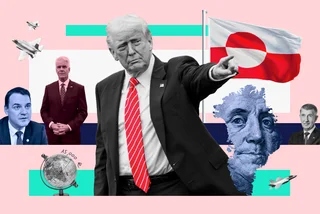Hungary and the Czech Republic have an alliance stretching back to their shared experience of Communism in the twentieth century and their membership since 1991 of the Visegrád Four, a grouping of Central European nations which continues to play a major role regional politics.
Relations between Hungary and the Czech Republic are now growing closer still, as the Prime Ministers of the two nations exchange visits to express their mutual support.
PARTNER ARTICLE
Czech leader Andrej Babiš is currently in Hungary, and is using the trip to express his agreement with controversial policies enacted by Hungarian Prime Minister Viktor Orbán. The two leaders visited Hungary’s border fence with Serbia on Wednesday, built to keep out a wave of migration from the Middle East during the migrant crisis of 2015.
The wall was symbolic of Hungary’s isolationist policy towards migration in opposition to the EU’s system of migrant quotas, in which migrants were allocated to individual member states. Babiš and Orbán underlined their continued opposition to mass migration during their border visit.
“There is no will in the EU to protect the border,” criticized Orbán. Babiš meanwhile argued against welcoming immigrants following the Taliban’s takeover of Afghanistan, saying “the Czech Republic will not accept migrants, but it will help them in their own countries.”
Babiš also pledged to help Hungary in its fight against migration, promising that a plan would be put in place to provide support in the form of soldiers and border guards to help police the Hungarian border.
Babiš also expressed his support for Orbán pro-family agenda while in Budapest. The Czech PM attended the fourth annual Demographic Summit, a conservative meeting which includes discussions on support for young families amid declining birth rates in Hungary and elsewhere in the region. Orbán’s emphasis on the traditional family model is seen by many as controversial due to its tendency to exclude sexual minorities.
“Only a policy aimed at the traditional Christian family can help us out of the demographic crisis,” Orbán has previously argued. Babiš meanwhile described declining birth rates as a “time bomb for Europe.”
Former U.S. Vice President Mike Pence also spoke at the conservative summit. He claimed either families or open borders can be supported to boost populations, but not both at the same time.
Babiš echoed his sentiments, saying "mass and uncontrolled immigration into Europe has nothing to do with sustainability of our European society, it is the other way round. The only truly sustainable solution to the gradual population extinction of Europe is to increase its own, native population. This is a path the Visegrad Four countries share."
Shortly after Babiš’s visit to Hungary, Orbán will come to the Czech Republic for an official bilateral meeting on September 29, which will include attendance at an election rally for ANO in the Ústi region. Orbán will thus express his support for Babiš in forthcoming Czech elections.
With ANO leading in the polls ahead of the vote this October, the developing ideological kinship between Babiš and Orbán signals the direction in which the Czech Republic could travel if the current Prime Minister is re-elected. Long connected by ties of history and regional friendship, Hungary and the Czech Republic are now also converging on matters of domestic policy under their current leaders.












 Reading time: 2 minutes
Reading time: 2 minutes 




























